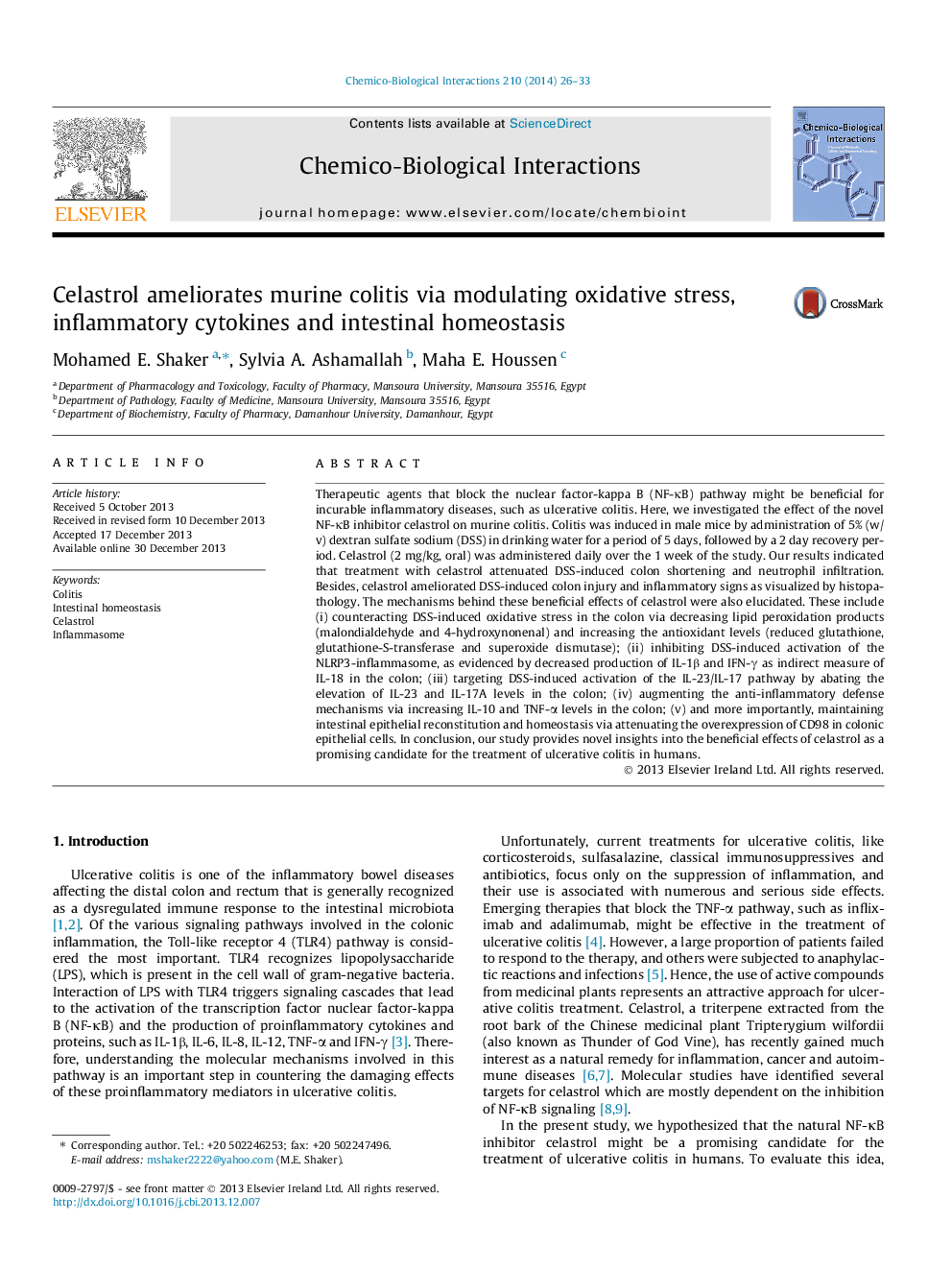| کد مقاله | کد نشریه | سال انتشار | مقاله انگلیسی | نسخه تمام متن |
|---|---|---|---|---|
| 2580495 | 1561631 | 2014 | 8 صفحه PDF | دانلود رایگان |
• The effects of celastrol were explored against murine colitis.
• Celastrol counteracted oxidative stress in the colon.
• Celastrol inhibited the NLRP3-inflammasome and the IL-23/IL-17 axis in the colon.
• Celastrol augmented anti-inflammatory defenses in the colon.
• Celastrol maintained intestinal epithelial homeostasis.
Therapeutic agents that block the nuclear factor-kappa B (NF-κB) pathway might be beneficial for incurable inflammatory diseases, such as ulcerative colitis. Here, we investigated the effect of the novel NF-κB inhibitor celastrol on murine colitis. Colitis was induced in male mice by administration of 5% (w/v) dextran sulfate sodium (DSS) in drinking water for a period of 5 days, followed by a 2 day recovery period. Celastrol (2 mg/kg, oral) was administered daily over the 1 week of the study. Our results indicated that treatment with celastrol attenuated DSS-induced colon shortening and neutrophil infiltration. Besides, celastrol ameliorated DSS-induced colon injury and inflammatory signs as visualized by histopathology. The mechanisms behind these beneficial effects of celastrol were also elucidated. These include (i) counteracting DSS-induced oxidative stress in the colon via decreasing lipid peroxidation products (malondialdehyde and 4-hydroxynonenal) and increasing the antioxidant levels (reduced glutathione, glutathione-S-transferase and superoxide dismutase); (ii) inhibiting DSS-induced activation of the NLRP3-inflammasome, as evidenced by decreased production of IL-1β and IFN-γ as indirect measure of IL-18 in the colon; (iii) targeting DSS-induced activation of the IL-23/IL-17 pathway by abating the elevation of IL-23 and IL-17A levels in the colon; (iv) augmenting the anti-inflammatory defense mechanisms via increasing IL-10 and TNF-α levels in the colon; (v) and more importantly, maintaining intestinal epithelial reconstitution and homeostasis via attenuating the overexpression of CD98 in colonic epithelial cells. In conclusion, our study provides novel insights into the beneficial effects of celastrol as a promising candidate for the treatment of ulcerative colitis in humans.
Figure optionsDownload as PowerPoint slide
Journal: Chemico-Biological Interactions - Volume 210, 5 March 2014, Pages 26–33
